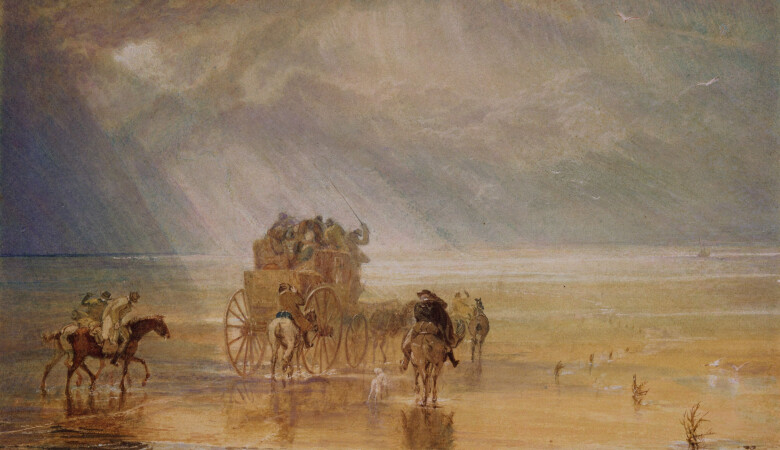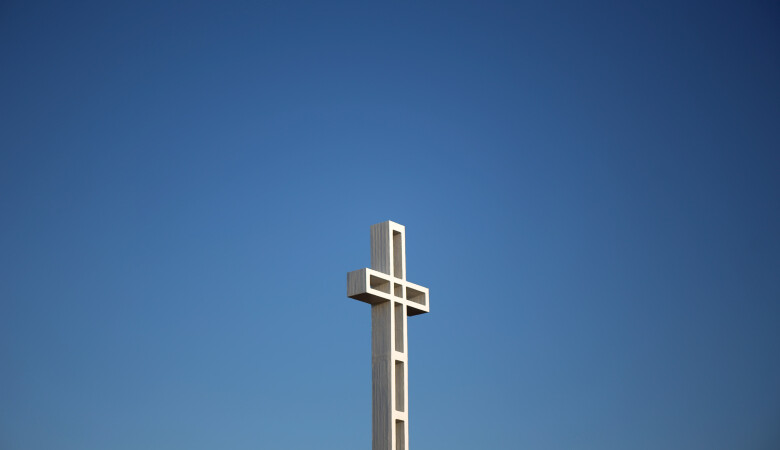The Irresistible Advance of Christ’s Kingdom
August 27, 2000 | Andy Davis
Psalms 2:1-12
Wrath of God, Glory of God, Evangelism, Sovereignty of God, Judgment, Supremacy of Christ, Prophecy, The Kingdom of Christ
Despite sinful humanity’s consistent rebellion against the establishment of Christ’s kingdom, our sovereign God remains entirely in control. Nothing can stop, slow, or hinder the advance and eventual total establishment of The Kingdom of Christ.
- SERMON TRANSCRIPT -
Introduction
Testimony to Christ in Psalms
You have a little hint in my prayer where we're going today, but we're looking at Psalm 2. We're looking at the second Psalm, so turn your Bibles there if you would. Last week, we began a new series in Psalms and my purpose in this series is to help us to look at the value of the written Word. We’re looking at Psalms that talk about the value of the written Word to the individual believer like Psalm 1 and those Psalms which testify to the living Word, Jesus Christ. There are some prophetic Psalms which look ahead and give us a picture, perhaps as much as a thousand years in advance of who Jesus would be and what his purposes would be. Now, as we look at world history and the history of what's going on even today, we see tremendous strife and conflict. We can see the churning of the waves of the nations.
It's very interesting in Revelation when it says, "I looked and there was no longer any sea." The Book of Revelation said there's no longer any sea. Well, in the Book of Revelation in chapter 13 it's out of the sea that the beast comes. A churning sea. That is the nations, and they're like a churning sea, aren't they? Whipped up like a hurricane, there's all this foment and rebellion. Psalm 2 gives us a focal point to that rebellion. It gives us a focal point to the purposes of the nations as they churn and chafe. And that focal point is rebellion against the Lord and against His Christ as well as whatever else is going on in history for the past 2000 years. As the church has sought to advance the Gospel of Jesus Christ, it has been opposed every step of the way. And what's so beautiful is that Psalm 2 said it would happen; the opposition would happen.
But what's even more beautiful is that Psalm 2 gives us the remedy: the sovereign power of God and his determination to advance the Kingdom, and that is our theme today. Look with me to Psalm 2 as we read along together. Beginning at verse 1, it says: "Why do the nations conspire and the peoples plot in vain? The kings of the earth take their stand and the rulers gather together against the Lord and against his Anointed one. “Let us break their chains,” they say, “and throw off their fetters”. The One enthroned in heaven laughs; the Lord scoffs at them. Then he rebukes them in his anger and terrifies them in His wrath, saying, “I have installed my King on Zion, my holy hill.” I will proclaim the decree of the Lord: He said to me, “You are my Son; today I have become your Father. Ask of me, and I will make the nations your inheritance, the ends of the earth your possession. You will rule them with an iron scepter; you will dash them to pieces like pottery.” Therefore, you kings, be wise; be warned, you rulers of the earth. Serve the Lord with fear and rejoice with trembling. Kiss the Son, lest He be angry and you be destroyed in your way, for His wrath can flare up in a moment. Blessed are all who take refuge in Him.”
Now, after Jesus was raised from the dead, He appeared to His disciples and spent with them 40 days. During that 40 days with his Apostles, He was giving them an intensive training in Scripture. It was a 40-day crash seminary course in the Old Testament and any of you who love the Word would love to have been there to hear it, wouldn't you? What better teacher than the incarnate Word of God? And so, it says in Luke 24:44-45: "He said to them, “This is what I told you while I was still with you: Everything must be fulfilled that is written about me in the Law of Moses, the Prophets and the Psalms." Did you hear that? There are Psalms that are written about Jesus Christ. Then it says: "Then he opened their minds so that they might understand the Scriptures." That is a good prayer for a preacher: “Oh Lord, open their minds that they might understand the Scriptures.” There's a veil over our minds; we don't see their truth coming through until the Holy Spirit removes that veil in Christ. And so, He opened their minds.
How to Interpret Psalms
It's an amazing thing to think of Jesus actually being able to open our minds, but he does. And he wanted them to understand the Scriptures in particular. And today we're going to focus on one of those: the second Psalm. Now, when we come to Psalms, we come to a difficult part of Old Testament Scripture to interpret. It is difficult because it is woven together in the everyday life of the Jews that wrote it, usually King David. Now, David was a messianic figure; he was a picture of Christ, and this is the beauty of the way that God has communicated to us. It says in Hebrews 1:1: "In the past, God spoke to His people through the prophets at many times and in various ways." Well, what are the various ways that God spoke to the people in the Old Testament? Well, he spoke to them verbally through predictive writings like Psalm 2. He also spoke to them in everyday life and through the events of life which he controlled to give a picture of what would come in the future. And some of the events of David's life give us a picture of the future reign of the Christ.
He was anointed with oil. He was anointed and the anointed one is the Messiah, the Christ. He was raised up to be King from humble origins, but he became King through much opposition and through much trouble and distress and many enemies and his reign was a difficult one. Until at last, he was finished with the work that God had him to do. Now, there are similarities between that and the reign of Christ, but there are differences as well. And so, as you read Psalms, it's difficult because some of the lines apply to Christ and some of them don't. They could be right closely together and woven together but there are some aspects of Psalms that have nothing to do with David, even though he wrote them. We get this. The analogy of Scripture teaches this and this is a foundational principle of interpreting Scripture. Scripture interprets Scripture. If you want to understand how to handle Psalms, then look at how the New Testament writers handle Psalms, and they found Christ there. They found Christ there.
Now, if you were to go to a university or a seminary class and didn’t fully understand that, you would be talking as you read through Psalm 2 about a coronation Psalm that was used in the history of Israel. When all the Davidic kings were raised up, they would read something like Psalm 2. The problem with that is it just goes too far: “Ask of me and I'll give you the nations for your inheritance, the ends of the earth for your possession.” It's a little ambitious for a small Palestinian king. The words lift us up above the immediate circumstance to point to something far greater. And so, Peter standing up on the day of Pentecost made it clear that there were some aspects of Psalms that did not relate to David's life, even though David wrote them. Like Psalm 16, in which David said “You will not let your Holy One see decay” (Ps. 16:10). Peter picked up on that and said David decayed. But there is one who didn't decay, and that is Jesus. He is the death conqueror and I stand here today to proclaim to you through the resurrection of Jesus Christ's triumph over the grave. You see how it works? It teaches us how to interpret Psalms. There are some aspects that are directly about David's life. But now, I'm going to take Psalm 2, and I'm going to just lift it up as a messianic Psalm because I believe from front to back it talks about Jesus Christ.
Overview and Structure of Psalm 2
Now, what is the theme of Psalm 2? Basically, the theme is this: the sovereign God, the Creator of the ends of the Earth, has given the ends of the Earth to His Son, Jesus Christ. He's decreed that they belong to Jesus. He is going to advance that kingdom and there is not a power on Earth or in hell that can stop it. That is the message of Psalm 2. The application of Psalm 2 is: be wise, don't oppose it, don't stand in the way of that advance, but come and join. That's what Psalm 2 is. Now you understand Psalm 2.I like to break it apart into four parts. I see in verses 1-3, humanity's strident rebellion. In verses 4-6, God's serene reaction. In verses 7-9, God's sovereign decree, and then verses 10-12, the preacher's urgent application.
Humanity’s Strident Rebellion (vs. 1-3)
Rebellion’s Insanity
Let's look at the first in Verses 1-3, humanity's strident rebellion. What is the first word of this Psalm? Somebody tell me, what is it? “Why” That's a powerful word, isn't it? Why? As a minister, I hear people ask that question so often in times of suffering, don't they? And who is it they're asking? If they're not asking the preacher, who are they asking? God.
They're asking God. Why could you let this happen to me? Right? Well, God is asking us here the question why. Isn't that powerful? I look through the Scriptures, and I don't have time to tell you all the times that God asks human beings why, but it's a powerful study. Just look up the word and go through and see the number of times he does it. He did it to Cain. He does it... I mean, just... I don't have time, but it's just a beautiful study. But I picked out one in particular, Ezekiel 33:11, it says: "As surely as I live, declares the Sovereign Lord, I take no pleasure in the death of the wicked, but rather that they turn from their ways and live. Turn! Turn from your evil ways!" And then he asks this, "Why will you die, O house of Israel?” Why? There is at the root of all sin, insanity, isn't there? I mean, there's this kind of an insanity in sin and in three senses, I think.
First of all, what good things you give up! Second of all, what terrible things you bring on yourself! And third, the absolute futility of the opposition, because you're fighting against God and you will lose. There's an insanity in the rebellion, and it comes out in the very first word, “Why”. Or how about this one from the lips of our Lord Jesus Christ to His disciples. Luke 6:46: "Why do you call me, ‘Lord, Lord,’ and don't obey what I command you?" Doesn’t that cut you? Just come right to the heart, why do you do that? And so, we have a picture of the insanity of rebellion right at the start. Rebellion is insane. And so, I'm just urging you as a preacher, lay down your weapons of rebellion, lay them down. You will not succeed. There's insanity to it.
Rebellion’s Extent
Well, what about the extent of the rebellion? How widespread is it? You know, if there's a king who's ruling over a realm and there's some news of some civil war, he wants to know, well, what districts are affected by it? What's the extent of the rebellion? Well, what is the extent of this rebellion? It is worldwide. It is universal. This is not just something we find in one culture, like in the US or one area like Europe. It's a worldwide rebellion. It's found everywhere.
It says, “Why do the nations rage and the peoples plot in vain?” Now, a Jew reading that, what's he thinking? When he reads about nations and peoples, what's he thinking about? Gentiles. Oh, the Jews are the chosen people, right? But the ironic thing is, in Acts Chapter 4, the apostles applied it to the Jewish leaders who were rebelling against Christ. You see what I'm saying? They're behaving like Gentiles, not like God's people. It really extends to everybody, Jew and Gentile alike, in their revolt against Jesus Christ. It's worldwide in its extent: “For all have sinned and lack the glory of God.” (Romans 3:23). It's worldwide.
Rebellion’s Nature
But what is its nature? Well, it says in verse 2: “The kings of the earth take their stand and the rulers gather together against the Lord and against his Anointed one.” The first thing we see is pride. There's pride at the root of this rebellion. Human leaders, you know, pride and ambition run deep in these people. And when you think about kings of the Earth, don't just think about political leaders. It could be a CEO of a multi-national conglomerate. It could be anybody with a position of power and influence. The kings of the Earth, you know?
And there is pride in these rulers and they don't want anyone to tell them what to do. It runs to the core of the rebellion. There's also some rage involved in it: in verse 1, in the Septuagint (the Greek translation), and it's brought over into the New Testament as well. In Acts 4 when they quote this, it says, “why do the nations rage”? NIV has “conspired”, but the root word is the same. There is an enraged conspiracy here. There's an anger to it. There's a sense of riot and rebellion here. But where does the rage come from? I think that the pride and the anger come together. When pride is thwarted, what is the result? Anger, right? Look at yourself. Whenever you want something and don't get it, you get angry. And so, pride and anger go together, and I think it's demonic in this case. There's a kind of a satanic side, because it says in Revelation 12:12, speaking of the Devil: “Woe to the earth and the sea, because the devil has gone down to you! He is filled with rage, because he knows his time is short.” So, I think that in their rage, they're behaving demonically. Pride and rage, what else?
There is meditation involved in this. There's an intellectual side to the rebellion. Now, last week in Psalm 1 we talked about meditation, didn't we? The godly blessed one doesn't take the counsel of the wicked, stand in the way of sinners, sit in the seat of mockers, but his delight is in the law of the Lord, and on his law, he meditates day and night. Same Hebrew word over here. They are meditating on how to throw off the shackles of the Lord. They're thinking deeply on how they can do it. It's like a think tank. Do you know what a think tank is? You get all the skillful intellectuals together and they think hard on one topic. And what is the topic here? How to get God out of our lives. How to throw off his reign. So, they're thinking deeply on it. So, there's pride, there's rage, there's meditation, and then there is organization. There is an organization here. There's a conspiracy. “The kings of the earth take their stand and the rulers gather”, what? “Together.” There's an organized revolt here.
Now, earlier when I was preaching through Genesis a year ago, we looked at Genesis 11. Remember the Tower of Babel? And there was this organization there, and they were building a tower to reach to Heaven. And remember what God said: "If as one people speaking the same language they have begun to do this, then nothing will be restrained from them." (Genesis 11:6). There's an incredible power in people working together for a common goal, good or evil, isn't there? And so, here we have a common goal: the throwing off of the reign of the Lord and of His Christ. And then finally, we see determination, pride, rage, meditation, cooperation, organization, and determination. They take their stand against the Lord. We get the picture like, Goliath, who for 40 days came and took his stand against the Lord's armies and blasphemed the God of Heaven. He took a stand. And so, they're determined. There's a battle of wills going on here. My will against yours.
Rebellion’s History
Is there any human being on Earth with a stronger will than God? Absolutely not. God's will is unshakable and unbreakable. But this is the nature of the rebellion. Now, if we were to take a long time under the tutelage of a church historian, we could go through the rebellion’s history, for it has characterized the last 2000 years. It wasn't just Pontius Pilate and the leaders of the Jews in Jerusalem; it went on from there to the Roman Empire as a whole. Roman emperors were opposing and fighting against the advance of Christianity. You know the stories about the Christians who were sacrificed in the Colosseum, and the Roman Emperors Nero, Decius, Valerian, and Diocletian one after the other, persecuting Christians. Now, understand the switch we've made here. Persecuting Christians is the same as persecuting Christ. Do you see that? Do you remember on the road to Damascus: “Saul, Saul, why do you persecute me?” (Acts 9:4)? You see, if you touch my body, you touch the head. That's how it works.
So, persecuting Christians is the same as fulfilling Psalm 2, and that's what these did. And after the Roman Empire went Christian, so to speak, and began to send out missionaries to the barbarian tribes, what did the barbarian chieftain start to do? Persecute the missionaries. The same thing, and it's carried on throughout all of history. When I was in Japan, I learned about the Shoguns and their opposition to Christianity. They would make Christians step on a plate representing Christ, and they knew no true Christian would ever step on that. And so, if you wouldn't, they'd kill you. The rage, the plotting, the opposition to the advance of Christianity has carried on into the 20th century. Hitler sought to crush true Christianity. So did Joseph Stalin and so did Mao Tse-tung. They tried to crush it. Even in our country today, do you see it? It's not just martyrdom, it's just a matter of opposition. Like some of the Supreme Court cases we have these days about even mentioning God or praying. We see this. There's an opposition even in a free democracy like this. It runs deep. It's universal.
Rebellion’s Futility
And then ultimately, we see rebellions futility. It's true what God said in one sense, in Genesis 11: “If as one people speaking the same language they have begun to do this, then nothing will be restrained from them.” But that's not a “nothing” with an absolute sense there. There is something they cannot do, and that is defeat God's purposes.
God’s Serene Reaction (vs. 4-6)
Look at the next section, verses 4-6, look at God's serene reaction: “The One enthroned in heaven laughs; the Lord scoffs at them. Then he rebukes them in his anger and terrifies them in His wrath, saying, “I have installed my King on Zion, my holy hill.” God's absolute serenity is founded on His absolute sovereignty. Do you see that? Peace comes from recognizing who runs the universe. I don't know what all you're going through. If we had time for testimony for about 15 hours, each of you could have about 25 minutes and tell us what you're going through.
"God's absolute serenity is founded on His absolute sovereignty. "
The answer to your problems is the absolute loving sovereignty of God. Whatever it is, God is sovereign and powerful and he rules. And so, there is peace that comes from understanding it, but the peace starts with God himself. Is God a flustered, upset, out of sorts being? Absolutely not. Our God is in Heaven, he does what pleases him and he's at peace, and so there's a serene reaction. The Scripture says he sits, he laughs, he mocks, he speaks, he terrifies, he decrees. That's his response to the rebellion. But he does not get upset, or anxious, or worried, or out of sorts. Not at all.
He Sits
I love what Charles Spurgeon had to say here. He said: "Observe, dear friends, the wonderful contrast between the violent excitement of the enemies of the Lord, and the sublime serenity of God Himself. He is not disturbed though the heathen so furiously rage, and their kings and mighty one set themselves up in battle array. He smiles at them: he hath them in derision. You and I are often downcast and depressed, and our forebodings are dark and dismal, but God sits in his eternal peacefulness, and serenely overrules tumult and rebellion. The Lord reigneth, and his throne is not moved, nor his rest broken, whatever may be the noise and turmoil down below. Notice the sublimity of this divine calm. While the heathen and their princes are plotting and planning how to break his bands asunder, and cast his cords from them, he has already defeated their devices, and he says to them, “Yet I have set my King on my holy hill in Zion.” You will not have my Son to reign over you, but nevertheless he reigns. While you have been raging, I have crowned him.”
Isn't that powerful? The sovereign serenity of God in the midst of all the tumult of this rebellion. Isaiah 40:22-23 speaks to this as well: “He sits enthroned above the circle of the earth, and its people are like grasshoppers. He stretches out the heavens like a canopy, and spreads them out like a tent to live in. He brings princes to not, and reduces the rulers of this world to nothing.”
He Laughs and Mocks
While I was preparing this sermon, I thought about the rebellion of those who would shake their fist at God and say, "I will fight you every step of the way." And I think about God up in Heaven and he says over to Gabriel, “Did you hear that? I know it's hard to hear. It's a little dim. They said, I'm gonna fight you every step of the way.” [laughter] I'm glad you laughed. It's a laughter in concert with Heaven, do you see? It can't succeed. Our God is powerful, and He's not threatened by this revolt at all, not even a little. He actually makes fun of it, and you know, it's interesting how God's laughter and mocking is not meant to be crushing to the rebels, but actually to give them time to repent, because there's a time gap between the laughter and the mocking and the terrifying and the rage. You see what I'm saying? When the wrath comes, there's been a long time delay, for our God is a patient God. And so, what the people are supposed to do is see the laughter in the thwarting of the everyday events as they try to do things and it doesn't work out the way they want.
The Church just keeps getting bigger and bigger. And there's a humor side to it, almost. Like Voltaire, who vowed that within one generation, no Frenchman would be reading the Bible. And within one generation, the French Bible Society had bought Voltaire's house and were printing Bibles in his house. There's some humor there. But it's supposed to make you think, “Wait a minute, we can't fight God. We can't oppose him.” It should cause them to repent, because ultimately, he's going to speak a word of judgment, that's what Psalm 2 says.
He Speaks and Terrifies
The laughter doesn't go on forever. There comes a point of rage and wrath. He rebukes them in his anger and he terrifies them in His wrath. God speaks to them a word of judgment. Matthew 25:41: "Depart from me, you who are cursed into the eternal fire prepared for the devil and his angels." That's a terrifying word. Now, as I was driving along the highway here, I've seen bumper stickers. Have you seen them? No fear. No fear? I saw the North Carolina equivalent just a little while ago, “ain't skeered.” [laughter] Have you seen that one? Is that... Maybe that's not from North Carolina, I don't know, but I ain't skeered, okay?
Well, our God knows how to terrify. If you'd been at the foot of Mount Sinai, you'd have been shaking when you saw that cloud descend. Moses was, he said, "I'm trembling with fear." That was Moses, he was a godly man trembling with fear. God knows how to terrify, and there are some things to be afraid of in life, like dying and going to hell. That's worth being afraid of. God's sovereign power over princes is clear, because that same Isaiah 40 passage, in which he talks about them as grasshoppers, it says: “He brings the princes of the world and the rulers of the world to nothing when he merely blows on them and they wither.” He just speaks and they wither. Do you remember when Jesus was arrested and there were all those Roman soldiers there in battle array, and he said, "Who are you seeking?” And they said, “Jesus of Nazareth," and Jesus said, “I am” (Ego eimi, in the Greek). “I am.” And what happened to the Romans? They just fell down in front of him. They just fell down. All he said was “I am”. That's his name! And they fell down.
This revolt will not get far, let's put it that way, because all he does is speak. And in terms of no fear, well, I read about fear in the future, Revelation Chapter 6:15-17: “Then the kings of the earth, the princes, the generals, the rich, the mighty, and every slave and every free man hid in caves and among the rocks of the mountains. They called to the mountains and the rocks, "Fall on us and hide us from the face of him who sits on the throne and from the wrath of the Lamb!” For the great day of their wrath has come, and who is able to stand?” That bumper sticker is gone now. They're looking for a place to hide.
God’s Sovereign Decree (vs. 7-9)
And what's the root of all this? His decree. He decrees, he says, “Nevertheless, yet, I have established my king on Zion, my holy hill.” He's established it. He's spoken the decree. God rules his Universe by decree. And what is this decree? Verse 7-9: “I will proclaim the decree of the Lord: He said to me, “You are my Son; today I have become your Father.” Now, this verse is quoted in Hebrews in regard to Jesus Christ. Let the New Testament interpret the Old Testament.
This is not spoken to David. This is spoken to Jesus Christ. For he says in Hebrews 1:5: “to which of the angels did God ever say, ‘You are my Son; today I have become your father’ or, ‘today I have begotten you.’” Jesus Christ is the eternally begotten Son of God, the second person of the Trinity. Now, don't imagine that because it says, “today I have begotten you” that there was a time when the father did not beget the son, that there was a time when the father existed, but the son did not. That is not true. He has always existed. That's an old heresy, Arianism. It existed a long time ago, that Jesus was a created being, and that at some point, God spoke him into existence. It has recreated itself under 30 years ago, under Charles Taze Russell with the Jehovah's Witnesses. They'll go around and tell you that Jesus is God's first created being. But it's false. And so, the Creed, the ancient Creed says that He is eternally begotten of the Father, God from God, light from light. Eternally, but then why... What is the “today” here? It says, “today I've begotten you.”
Well, Paul answers this for us in Acts 13, as he's preaching, in Acts 13 it says, verse 32-33, "We tell you the good news: What God promised our fathers he has fulfilled for us, their children, by raising up Jesus. As it is written in the second Psalm: ‘You are my Son; today I have begotten you.’” So, he's linking it to the resurrection of Christ, so it really has to do with declaration of the Sonship to the world. And this is the foundation of the spread of the Son's kingdom, isn't it? The resurrection of Jesus Christ sets Him apart from every religious leader, and on the basis of that, we see the declaration of Jesus as the second person of the Trinity. It says in Romans 1:4: “who through the Spirit of holiness was declared with power to be the Son of God by his resurrection from the dead: Jesus Christ our Lord.” You see, other than that, he's just a man who made some claims and died and rots in the grave. But he's not just a man, he's the second person of the trinity. And on the basis of that declaration of the Sonship of Jesus Christ, the gospel has been spreading for the last 2000 years. That's the basis of the advance, the resurrection of Christ.
And what is the extent of the reign of Christ? In verse 8, “Ask of me, and I will make the nations your inheritance, the ends of the earth your possession.” Who's speaking to whom there? Ask of me is imperative, the Father is speaking to the Son. Do you see that? The Father is speaking to the Son and He's saying, “Give me a prayer request, and I'll answer you. Don't make it a small one, make it a big one. Ask of me and I'll give you the nations as your inheritance. The ends of the earth, your possession.” Now that's big, it's big enough for the power of God, isn't it? Big enough for what the Son accomplished in dying on the cross. That's a big request. And so, Isaac Watts said so beautifully in a hymn we're about to sing, "Jesus shall reign where'er the sun doth his successive journeys run. His kingdom spread from shore to shore, till moon shall wax and wane no more." It's the foundation of the modern missionary movement, some left one shore and arrived at another in the name of Jesus Christ and said, “worship the Son”. That's how it works.
And what is the execution of the power? Verse 9, “You will rule them with an iron scepter; you will dash them to pieces like pottery.” You say, “you know, that doesn't sound like the Jesus I know.” Gentle Jesus, meek and mild. What is this ruling with a rod of iron? Well, this verse shows up in Revelation 19, when Jesus returns with that white charger and the armies of Heaven. You'll rule them with an iron scepter. The context in Psalm 2 is what? A friendly embracing of the Christ? No, the context is of pitted determined rebellion against the Christ. And so, if that's the state you're in when the Lord returns, you will be smashed. Isn't that what it says? “You'll dash them to pieces like pottery.”
The Preacher’s Urgent Application (vs. 10-12)
Okay, so now we get to the application. The preacher's urgent application. Now, usually preachers have to come up with their own application, but I don't need to. The preacher does it for me here, the Psalmist, David, and he steps in and he says, “Can I give you a word of advice based on these truths?” Isn't that what application is? I want to speak to your life, and so, I will take my application from this application, and I divide it into two categories.
There are two types of people who need to hear Psalm 2. There are those who have believed already in Jesus Christ and those who have not yet believed, but are part of the rebellion, even now. Of that second category, namely unbelievers, I would give this word, and it comes right from verses 10-12, be warned and believe. Be warned and believe. Look what it says: “Therefore, you kings, be wise; be warned, you rulers of the earth. Serve the Lord with fear and rejoice with trembling. Kiss the Son, lest He be angry and you be destroyed in your way, for His wrath can flare up in a moment. Blessed are all who take refuge in Him.” There are five imperatives here, be wise, be instructed or warned, serve or worship with fear, rejoice with trembling, and submit to or kiss the Son. Be wise. Put away the rebellion. Don't be foolish. Be wise. Now, where do you get this wisdom? 2 Timothy 3:15 says: “The Scriptures are able to make you wise for salvation through faith in Christ Jesus.” The wisdom is right here in Psalm 2. Be wise, don't fight God, don't fight Jesus Christ, be wise.
Proverbs 22:3, the book of wisdom says: “A wise man sees danger and takes refuge, but the foolish keep going and suffer for it.” What is the refuge? Is there a refuge even in our passage here? Look at verse 12, blessed are all who what? Take refuge in Him. There is a refuge, His name is Jesus Christ. There is a day of wrath coming, but Jesus is the refuge. Be wise, be warned, serve the Lord, rejoice with trembling. Find your joy in Christ. Repent and lay down those weapons of rebellion and of disobedience. Be warned and believe. But what of the believers? Most of us I would say fancy ourselves believers in Jesus Christ. What to us? Alright, I'll speak this word, be bold, be bold. Do you see it? Do you feel a courage coming out of Psalm 2 here? Ask of me, and I'll give you the nations as your inheritance, the ends of the earth your possession. Oh, but Lord, India has 900 million people. That's too big. Oh, I'm sorry, it's smaller than the ends of the Earth, and the nations as an inheritance. That's a smaller thing. It's a lesser thing. Isn't it?
So, we get on our knees and we get bold in our prayers, we start asking for bigger things like India. “God give Jesus Christ, India.” Do you see that? Be bold in your prayers, be worldwide in your prayers. Be bold when facing obstacles and persecution. Say, “Well, it was already prophesied, I knew it was coming.” Right here in Psalm 2, it's going to come. But we're going to triumph, we're going to be victorious. Be bold in the time of persecution and strife; be bold and courageous; be bold in outreach plans. Make big plans and carry them out by the power of God. Don't be a small weak Christian. Psalm 2 gives you the foundation for boldness in ministry in Jesus Christ. Reaching out big. Is it too big a thing that we could ask for Durham to glorify God, that we could ask to be used by God to lead many, many people here to Christ? Is that too big a thing for God? Oh, it's small, it's a subset of the other request. “Ask of me, and I'll give you the nations for your inheritance, the ends of the earth, your possession.”
"Be bold in the time of persecution and strife; be bold and courageous; be bold in outreach plans. Make big plans and carry them out by the power of God. Don't be a small weak Christian."
To the unbeliever, I say: be warned and believe. If today you hear His voice, if you feel the pull of Jesus Christ today, come to faith in Christ, don't put it off. And why there's a warning here, do you see it? “Kiss the Son, lest He be angry and you be destroyed.” Look what it says, “in your way.” Do you understand what that means? In your way, while you're living your life… [snaps fingers] it's over! Do you understand that? That death hangs over us, and we never know when that day will be. Do you know who holds the day of your life and the day of your death? It's God your creator. He knows the day of your death. Be wise before it's too late and you be destroyed in your way. I didn't make this up, it's what it says. Suddenly it comes, a sudden illness, an accident, car accident, suddenly you grab your chest and it's over. Be wise before that day comes, rejoice in Christ. And to you who are believers, be bold for Jesus. Nothing is too small to attempt for Jesus Christ. Please close with me in prayer.
Closing Prayer
Heavenly Father, we're just in awe of who you are. We're in awe of Your decree that You have made in reference to your Son. And nothing will change that decree, and I praise You for it, because my salvation is included in it. Thank you so much, and not just me, but all who are called by Your name. O heavenly Father, I pray now for the unbeliever within the sound of my voice that they would not let the sun go down today without repenting and coming to faith in You, Lord Jesus. O and I pray for my believing brother and sister that they would be bold and no longer timid, but take risks in one sense, but there are no risks, but just for us, they seem like risks that we would step out and say something to a relative or a friend or to someone about Jesus Christ. Or to make a plan for a ministry that's new and bold. O God, give us this power, we pray in Jesus’ name. Amen.






















